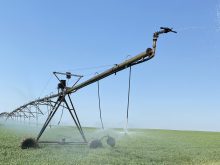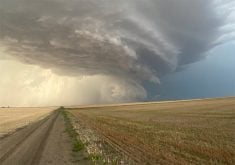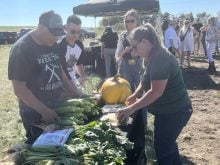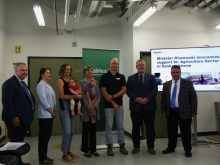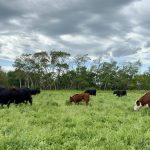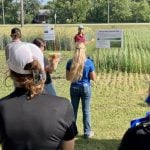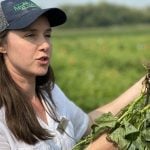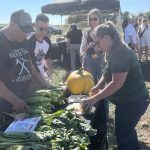Travelling at 140 kilometres per hour, eight metres above the ground, tucked inside the cockpit of a fully loaded plane is no place to let your mind wander.
“You can’t lose your focus. You have to keep the job No. 1,” said Tom Kinniburgh.
The Taber, Alta., aerial applicator of agricultural chemicals said the main cause of accidents in spray planes is operator error.
“We’ve had a few accidents on the Prairies this year, and unfortunately one young pilot (from Kelvington, Sask.,) was killed,” said Kinniburgh, president of the Alberta Aerial Applicators Association.
Read Also
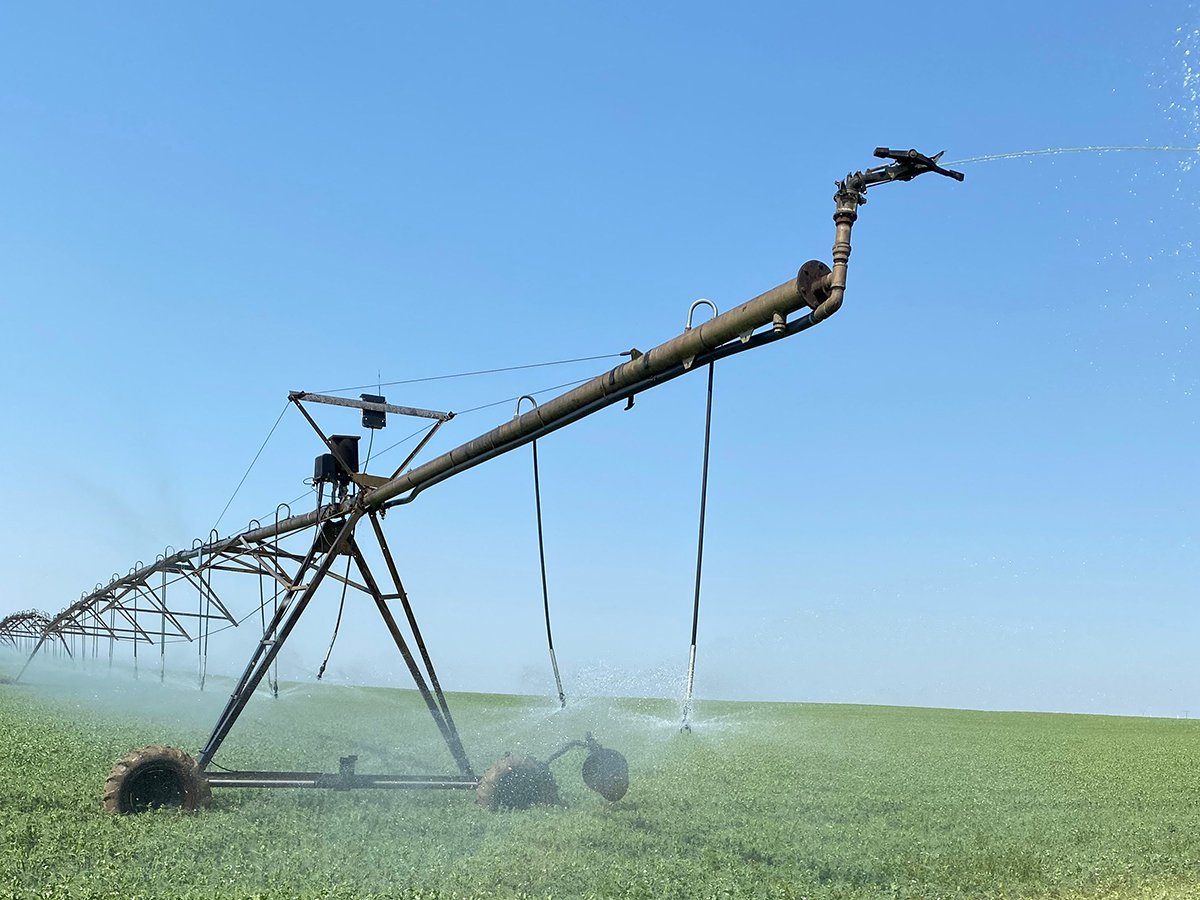
Irrigation expansion urged in Western Canada
An asset management and investment fund says irrigated farmland is a significant opportunity for Canada to boost productivity and gross domestic product.
There was agreement from Jim Wood of Pense, Sask., president of the Saskatchewan association.
The federal Transportation Safety Board reports fewer aerial work accidents so far this year than the five year average.
“We don’t know what happened in that unfortunate, fatal accident at Wynyard. But we do know that nine out of 10 accidents are the result of operator error,” Wood said.
Equipment failure caused a spray plane to crash at Indian Head, Sask., earlier this month. The pilot in that incident escaped serious
injury.
“That is the exception, when a motor fails,” said Wood.
He and Kinniburgh, veteran aerial applicators, said the industry has become safer over the years because of better acceptance of pilots’ personal limits.
They say the industry has improved by ensuring operators get enough rest and are mentally ready to work.
Wood’s business generally shuts down in the middle of the day for a few hours for lunch and a rest break.
“Not every pilot likes my policy. But dawn to dark without a break isn’t smart,” he said.
Focus on field
Kinniburgh said pilots also need to learn
to leave other issues behind when they climb into the cockpit.
“If you’re thinking about problems at home or some business (issue), then you need to go home or call somebody and solve that. Otherwise you might not get the opportunity later. I think as an industry we’re getting better at making sure pilots are aware of their own limits. But there are other pressures,” he said.
“Banks need to be paid. There’s insurance companies that want their share, payrolls. But when you’re working, that stuff has to go away.”
Pressure from farmers to get fields sprayed before insects rob them of crops is one aspect of the business that hasn’t changed.
Wood said aerial applicators must maintain good working relationships with their customers, but the pilots must be able to explain why crops might not get sprayed when the conditions appear to be “good enough” to the producer.
He said weather and mechanical safety are easier to explain to farmers than is a fatigued pilot.
“It’s a short season and pilots need to work as many hours as they can. But if you push too hard, for too long, it can shorten up your hours when you run out of energy and need time to recover,” he said.
“You shouldn’t push to the point that you wake up with a start as you bounce off the field or nod off while the plane’s being filled. It’s about working at a steady pace, being safe and being able to say no,” Wood said.
Spraying in the southern prairie grain belt is wrapping up for the season.
Bertha armyworms and diamondback moths have reached economic control thresholds in canola crops, say agrologists.
Wood said planes are more reliable and more expensive than in the past.
“We have better tools such as GPS and planes that are safer and better to fly. But we have the pressure of bigger (financing) payments, too,” he said.
New issues are cropping up for aerial applicators. Farmers’ knowledge of their fields can no longer be counted on as more land is rented and hired staff do fieldwork.
Kinniburgh said twice this season his company has been called out to spray fields that have 250 metre wind turbines sticking out of them.
“We can’t spray those. The turbulence, if they are running, and the size of the obstacles make that a ground job. We now get lots of bookings from (grain companies) or other third parties and renters for fields that they know little or nothing about,” he said.
“It results in more scouting and not relying (only) on what you’re told,” he said.


